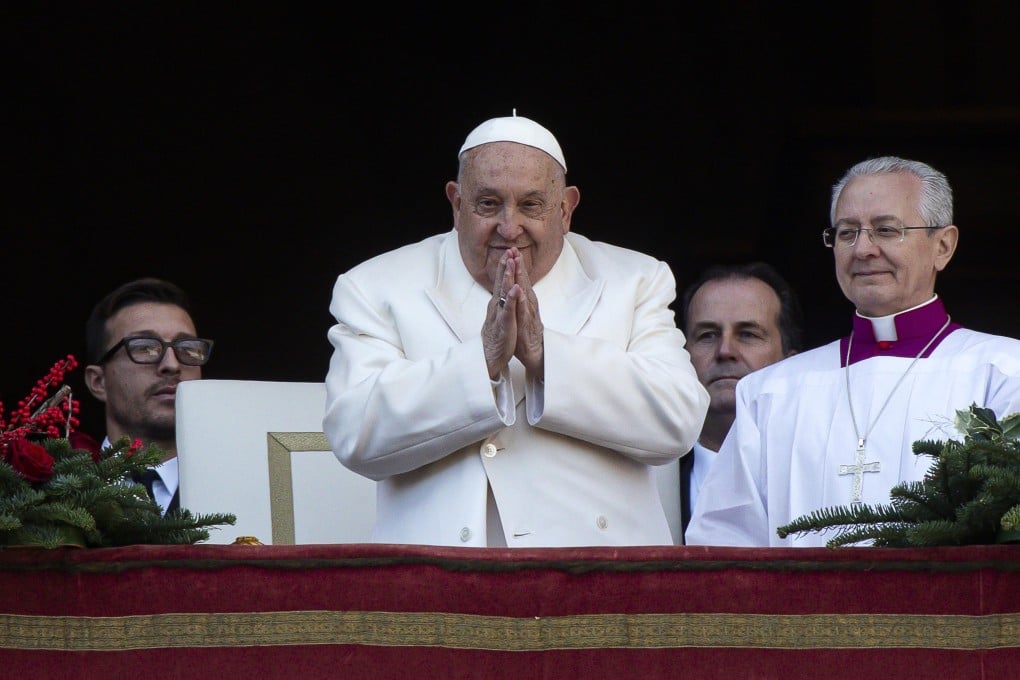Pope urges ‘all people of all nations’ to silence arms in Christmas address
He called for an end to conflict in Ukraine and the Middle East, singling out Christian communities in the region

The pontiff’s Urbi et Orbi – “To the City and the World” – address serves as a summary of the woes facing the world this year.
As Christmas coincided with the start of the 2025 Holy Year celebration that he dedicated to hope, Francis called for broad reconciliation, “even [with] our enemies”.
“I invite every individual, and all people of all nations … to become pilgrims of hope, to silence the sounds of arms and overcome divisions,’’ the pope said from the loggia of St. Peter’s Basilica to throngs of people below.

The pope invoked the Holy Door of St. Peter’s Basilica, which he opened on Christmas Eve to launch the 2025 Jubilee, as representing God’s mercy, which “unties every knot; it tears down every wall of division; it dispels hatred and the spirit of revenge”.
